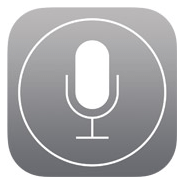Analyst Gives Both Google Now And Siri A “C+”
Piper Jaffray financial analyst Gene Munster performed his now annual comparison of Google Voice Search/Google Now and Siri to determine which one performed better. Using 800 queries under a variety of “controlled” and “uncontrolled” conditions, Munster and his team tested and compared the two “assistants.” Munster gave Google Voice Search/Now a C+, an improvement from the […]
 Piper Jaffray financial analyst Gene Munster performed his now annual comparison of Google Voice Search/Google Now and Siri to determine which one performed better. Using 800 queries under a variety of “controlled” and “uncontrolled” conditions, Munster and his team tested and compared the two “assistants.”
Piper Jaffray financial analyst Gene Munster performed his now annual comparison of Google Voice Search/Google Now and Siri to determine which one performed better. Using 800 queries under a variety of “controlled” and “uncontrolled” conditions, Munster and his team tested and compared the two “assistants.”
Munster gave Google Voice Search/Now a C+, an improvement from the D- it received a year ago. Siri received the identical C+ grade, up slightly from a C last year.
It may well be that Google Voice Search/Now and Siri have achieved some level of parity in their ability to understand and answer questions. However Munster’s past and current analyses are sloppy in many respects. Google Voice Search and Google Now are distinct things. And currently Apple offers nothing like Google Now.
Here are the Piper Jaffray report cards for Siri and Google:
Source: Piper Jaffray
It’s probably the case that Munster is using the term “Google Now” to describe the mix of functions comprising Google Voice Search and Google’s Knowledge Graph. Mostly what he appears to be testing is Google Voice Search and resulting answers.
Google Voice Search is a substitute input mechanism. However “Google Now,” in actuality, combines a variety of signals including location, time of day and a range of user data (i.e., Gmail, calendar, search history) to provide “predictive” or “anticipatory” search results. While Apple/Siri may seek to develop some sort of predictive or anticipatory capability in the future, iOS has nothing like Google Now today.
Google recently introduced a follow-up “conversational” capability for voice dictation on mobile devices. And Google demonstrated “conversational search” at its developer conference earlier this year. However Siri still leads in its ability to “understand” questions and requests. By contrast, Google has a vastly better database/index of information and can deliver better results in many instances in response to the same voice input (maps is one example).
In my testing and experience, not as systematic as the Piper Jaffray example above, I have found that Nuance (which is behind Siri’s speech recognition) is consistently more accurate than Google speech recognition, especially for dictation and longer queries. However I was with the founder of “anticipatory search” technology provider Expect Labs a couple of days ago and he was arguing that Google speech recognition was improving dramatically and would likely exceed Nuance’s accuracy in the not-too-distant future.
Stepping back from the Google vs. Siri debate the more profound development is that the “virtual assistant” competition between Google, Apple and others in the enterprise (e.g., IBM’s Watson) is previewing the future of computing and search, where an increasingly broad and rich set of signals generate much more narrowly tailored results or “answers” vs. today’s “ten blue links.”
In addition, input mechanisms such as voice are fundamentally changing our expectations and the way we interact with “search.” The Star Trek computer is indeed on the horizon.
Contributing authors are invited to create content for Search Engine Land and are chosen for their expertise and contribution to the search community. Our contributors work under the oversight of the editorial staff and contributions are checked for quality and relevance to our readers. The opinions they express are their own.
Related stories
